Summer is the perfect time of year to relax, kick back, and enjoy some high-quality vacation time!
For a lot us, that means grabbing the sunblock and pair of shades, and hitting the beach, preferably with this snazzy pocketed beach towel in tow.
Of course, heading to the beach to soak up the sun is relaxing, but it isn’t all fun and games.
It’s important to be aware of the dangers of the sun and surf, even as you enjoy the beautiful weather, so that your beach day is as safe and perfect as possible!
That’s why it’s important to protect your health and life by being aware of one of the big hidden risks of the ocean: unexpected riptides that come up out of nowhere.
This terrifying hazard is responsible for an average of 46 deaths every year, so it’s well worth the time to learn the basics and absorb what to do, just in case.
Do you know of anyone who's ever been caught in a riptide? Or have you yourself experienced one?
Let us know in the comments below, and please SHARE this lifesaving information!
Riptides 101
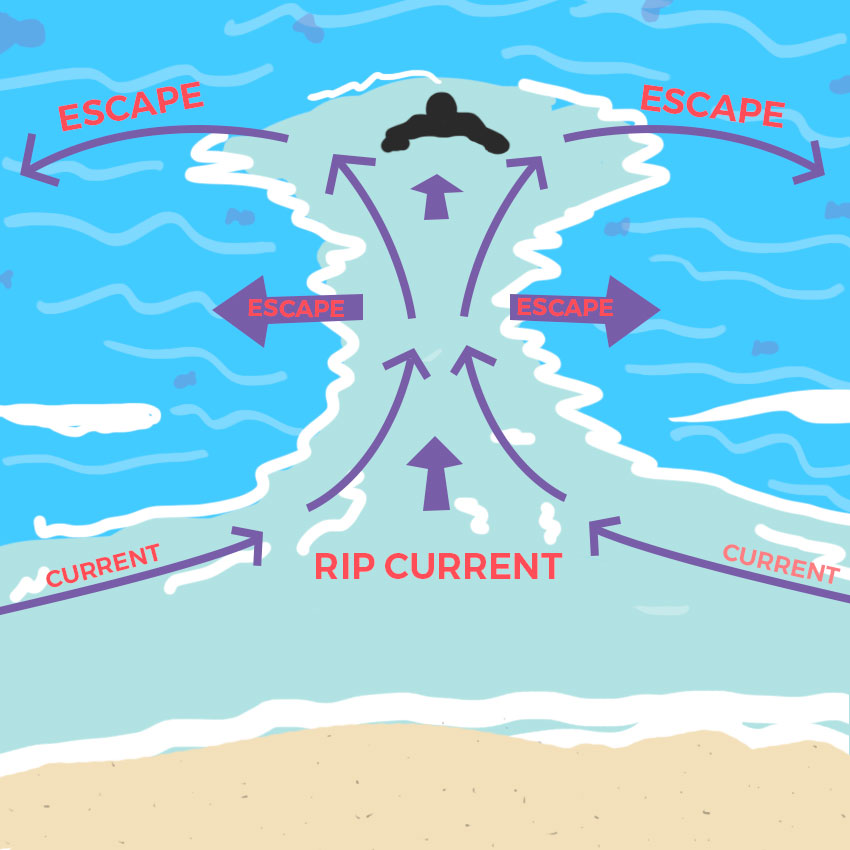
So what exactly is a riptide? The name itself is a bit deceptive, because it's not a tide at all, it's a strong current.
According to the United States Lifesaving Association: "Rip currents are powerful, channeled currents of water flowing away from shore. They typically extend from the shoreline, through the surf zone, and past the line of breaking waves."
These kinds of currents can occur in a large body of water with waves that break, even large lakes.
Survival Tip #1: Watch The Waves
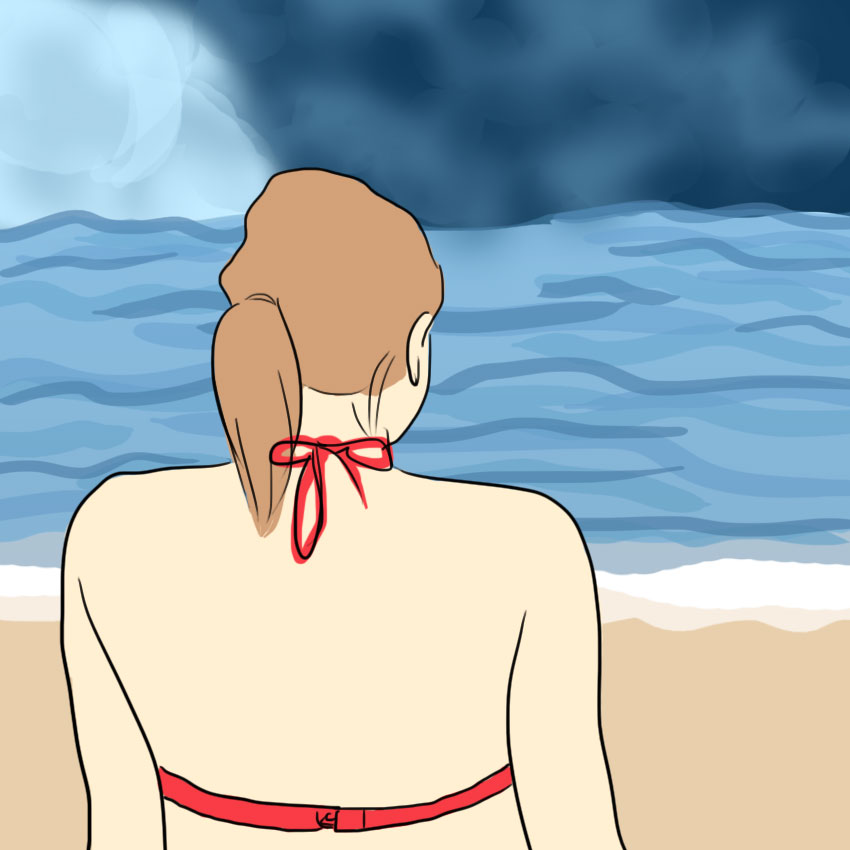
Your best assurance of staying safe from riptides is simply knowing that the risk is out there.
That way, you can stay aware of dangerous conditions, and know when the possibility of a riptide is highest.
Naturally, you need to keep an eye out for storms coming in, but it's also important, even during nice weather, to notice if waves are breaking hard in one spot and gently in another: the perfect conditions for a riptide to develop.
Survival Tip #2: Don’t Go Out Over Your Head
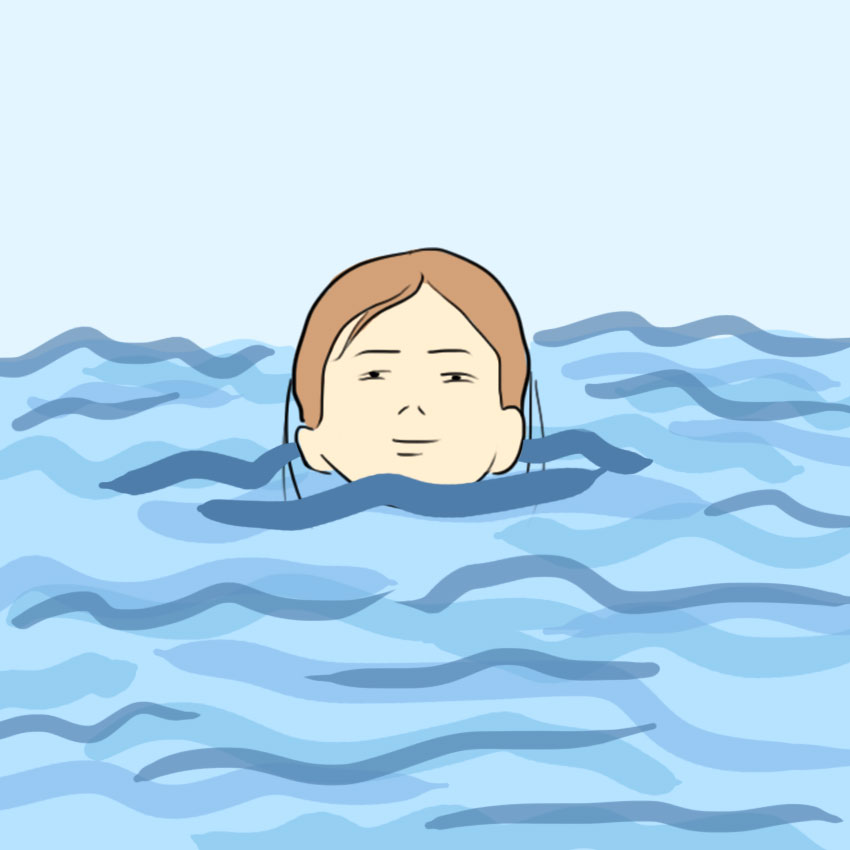
In general, one of the best ways to stay safe in a large body of water is to keep from going out over your head.
You should make sure that you can always put both feet on the ocean floor and still breathe with your nose and mouth above water.
That way, you have a bit of an assurance that, even if you are caught in a current, you'll be able to anchor yourself in place.
Survival Tip #3: Keep Your Feet Down
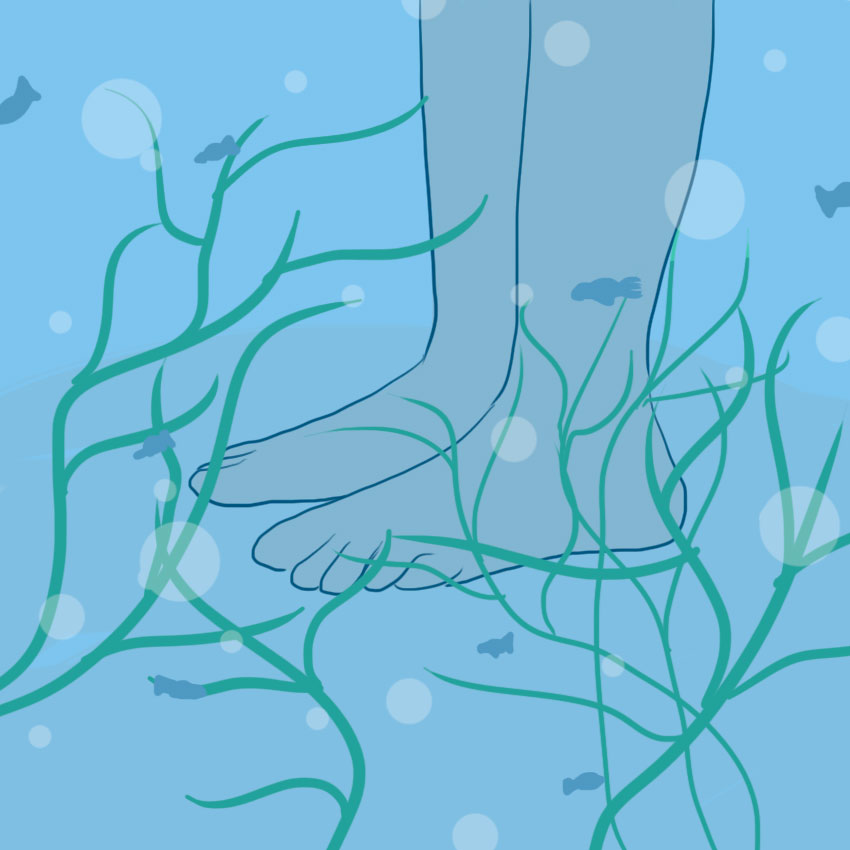
If you do find yourself caught in a strong current that feels like a riptide, make sure to keep your feet firmly grounded.
Having this point of connection to the ground helps to stabilize your body and keeps the waves from yanking your feet out from under you.
If your feet do get swept away, do your best to reconnect to the ground as quickly as possible and dig your feet in.
Survival Tip #4: Call Attention To Yourself
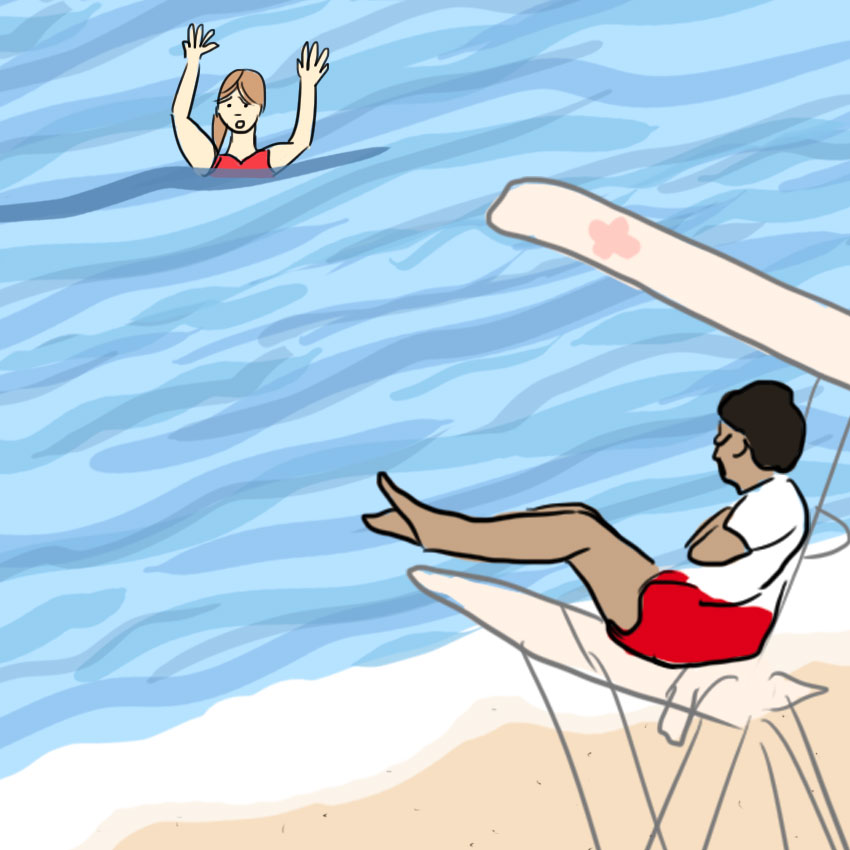
Even if you're a strong swimmer, a riptide can conquer you immediately if you're taken unaware.
That's why it's important that you call out for help as soon as you feel that you've lost control.
Get the attention of a lifeguard or another beachgoer by shouting, "Help!" rather than screaming, which might go unnoticed at a busy, noisy beach.
Survival Tip #5: Swim Parallel To The Shore
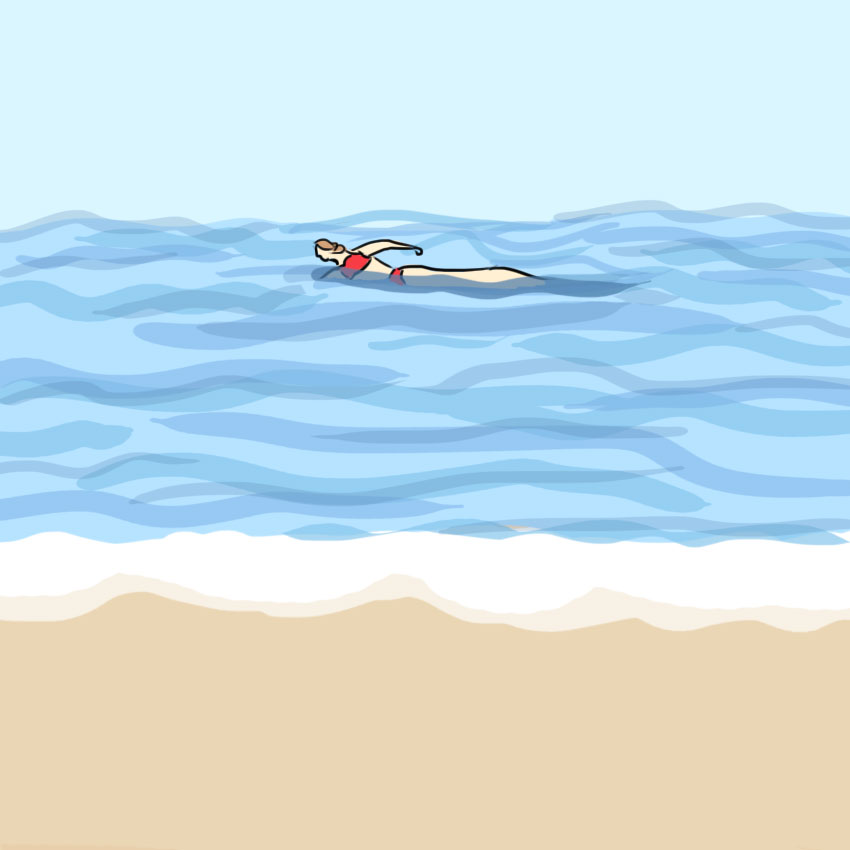
If you can swim, try to break free of the current by swimming in a line parallel to the shore.
Don't try to turn around and swim straight back to shore, because then you'll be struggling straight against the current.
Swimming parallel can help you break free from the flow of the current, which tends to be quite narrow.
Survival Tip #6: Don’t Fight It
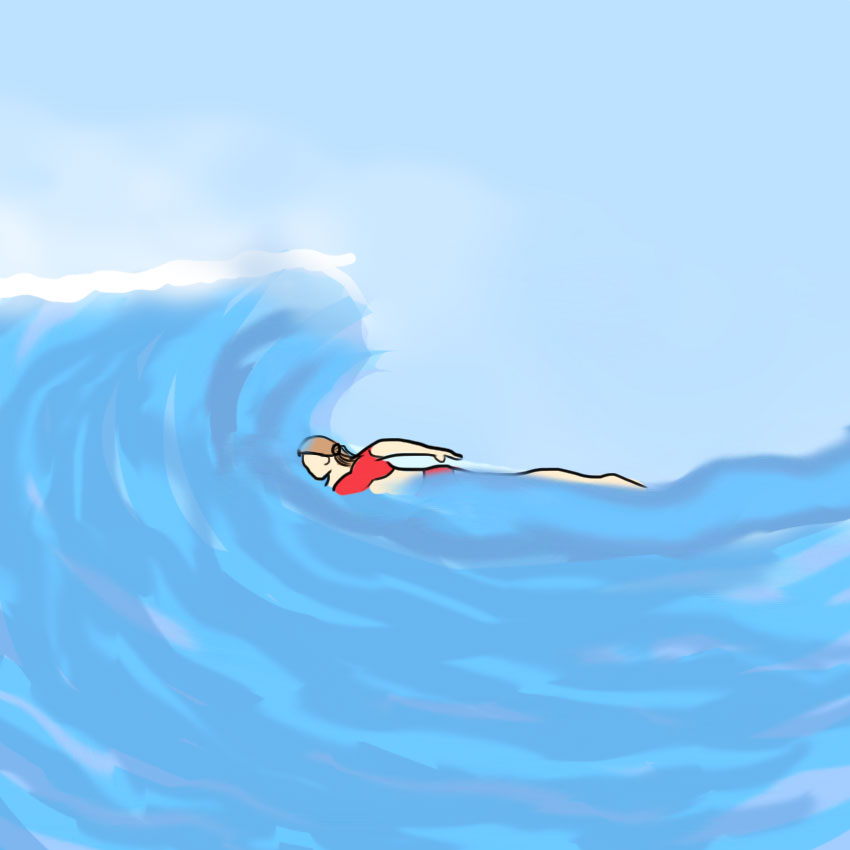
By the same token, you shouldn't fight against the flow of the water.
The water is immeasurably larger and stronger than you are, and trying to fight the current directly will simply exhaust you.
If you can't swim sideways to break free, simply allow yourself to be pulled in the hopes that you'll swing free in the process.
Survival Tip #7: Keep Calm
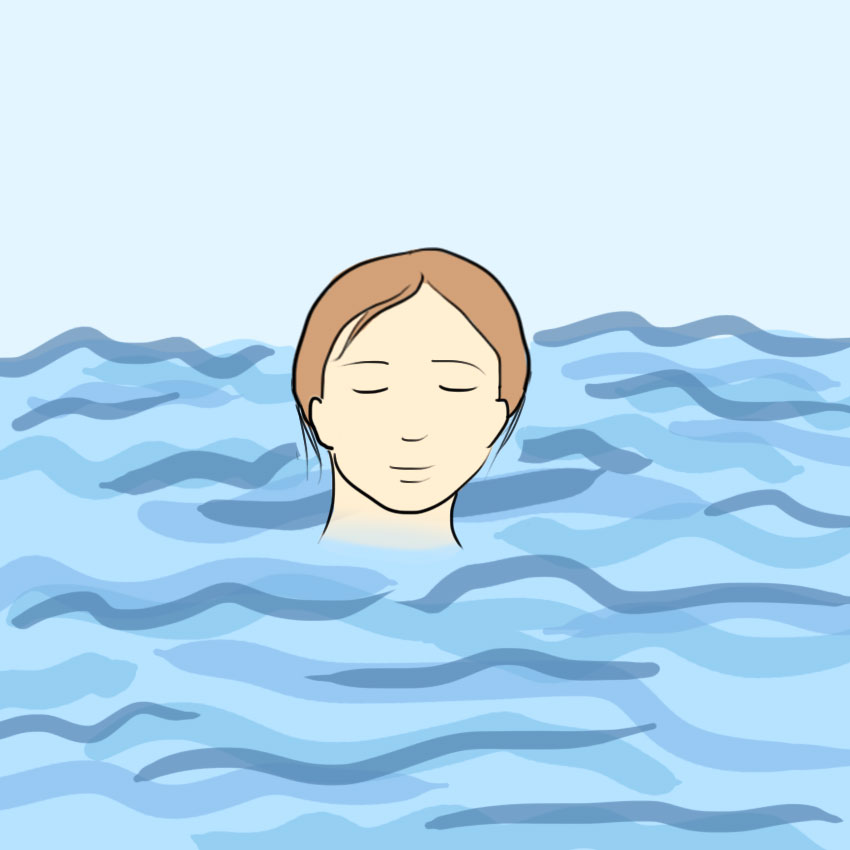
This one is tricky, but extremely important to remember: if you're stuck in a riptide, you need to stay calm.
Stay mellow, float along, and try to breathe deeply and normal.
If you panic, your breathing will pick up and you may exhaust yourself, pass out, or even inhale water by mistake.
Survival Tip #8: Float On
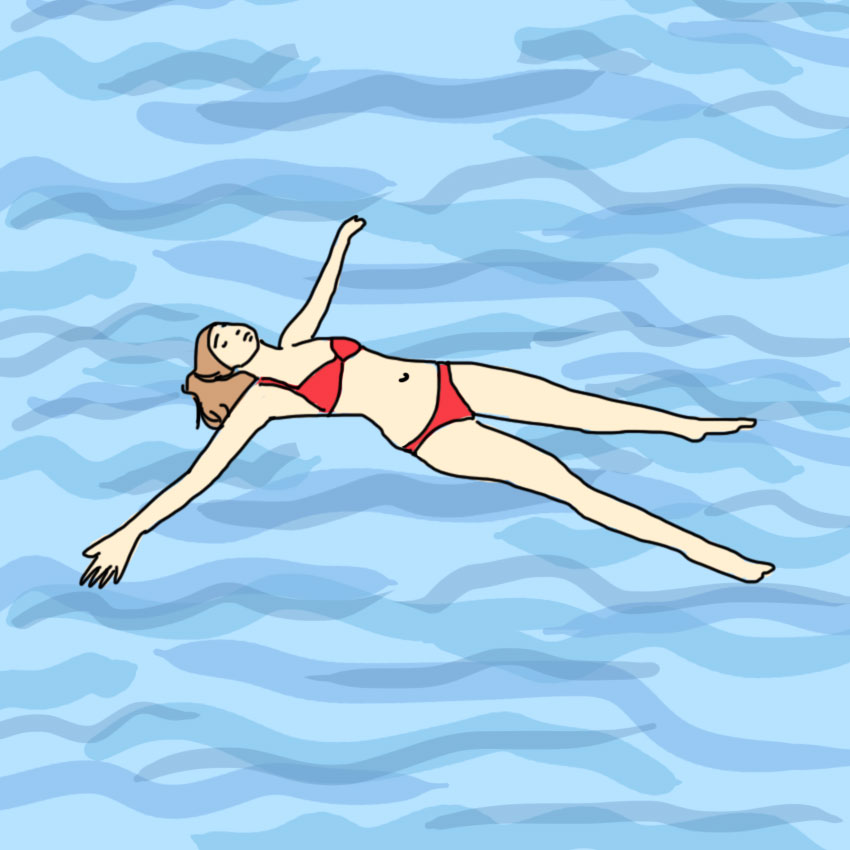
If all else fails, roll yourself onto your back and push your hips up to create a pocket of air at the small of your back.
This is the easiest way to survive in the ocean, especially if you aren't a strong swimmer, and your best bet if you find yourself caught far out at sea, away from shore.
By floating, you stop expending the energy of struggling and swimming, and give yourself the necessary rest to break free of the current or grab onto something when it gets weaker or you have an opportunity.
That way, you have a much better chance of getting yourself free from a scary situation!
If you learned something new from this lifesaving guide, make sure to SHARE with anyone who loves hitting the beach!




